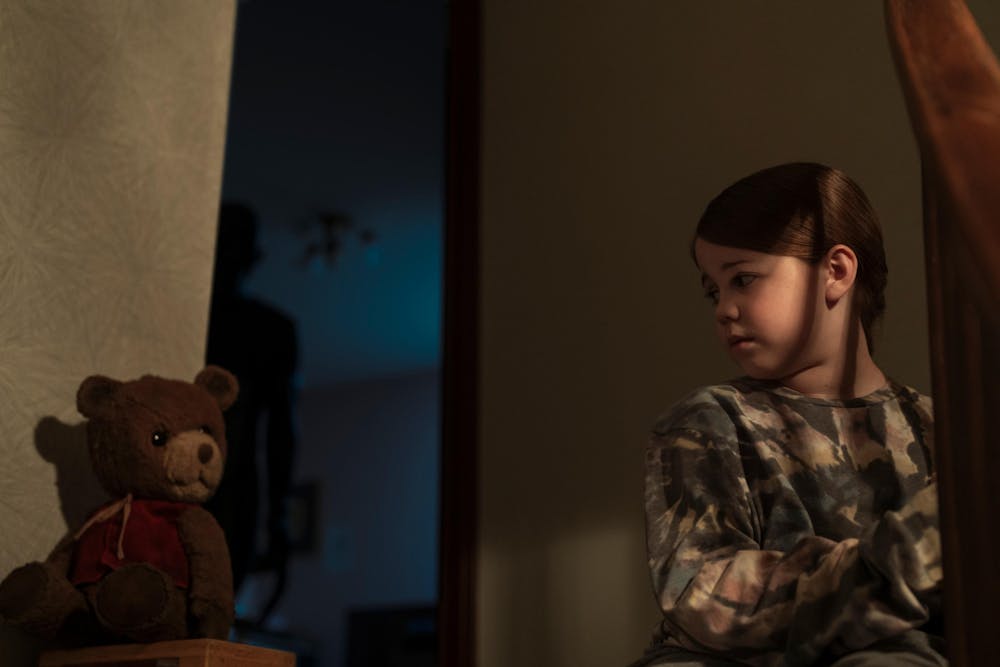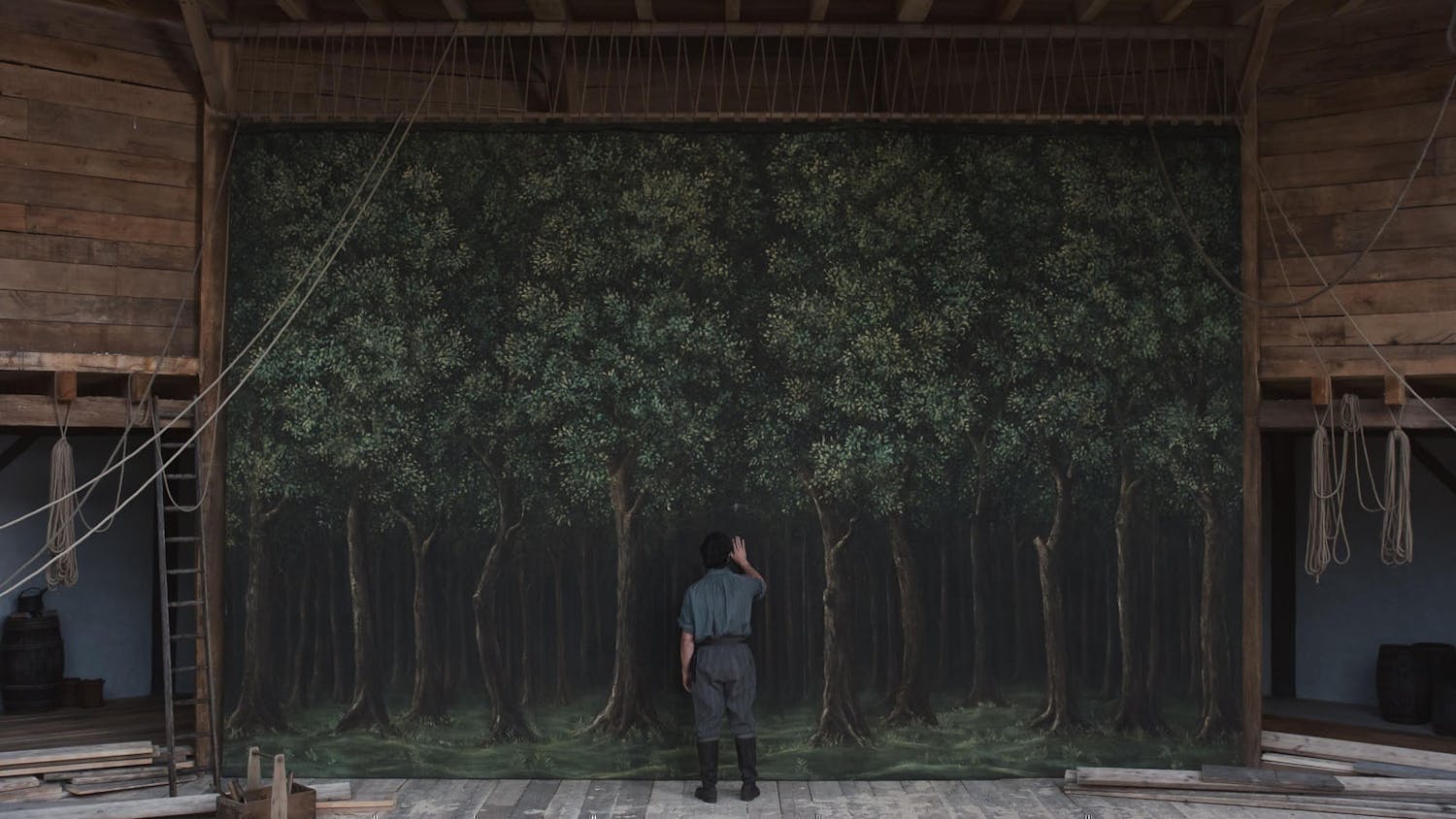Imaginary friends are a common topic of exploration for screenwriters. From the animated show “Foster’s Home for Imaginary Friends,” to David Fincher’s film “Fight Club,” film and television have explored both the fun and danger that imaginary friends can bring.
In director, producer and screenwriter Jeff Wadlow’s 2024 horror film “Imaginary,” he chooses to delve into the darker side of imaginary friends. While Wadlow and his co-writers, Greg Erb and Jason Oremland, have a fresh subject for the film, the script lacks imagination.
The Blumhouse and Tower of Babble-produced film follows a familiar setup, with a family moving into a potentially haunted or supernatural house.
The story centers on Jessica (DeWanda Wise), an artist and children’s book author who has found success with her character “Millie Millipede.” While working on her latest character, Simon the Spider, Jessica and her new husband, Max (Tom Payne), relocate to Jessica’s childhood home with Max’s daughters, Alice (Pyper Braun) and Taylor (Taegen Burns).
Returning to her childhood home holds significant weight for Jessica, as her mother died from cancer when she was five and her father suffered a subsequent mental decline. Jessica was then removed from the home and placed in her grandmother's care.
Jessica has trouble connecting with Max’s teenage daughter, Taylor, but seems to be making progress with his elementary school-aged daughter, Alice. However, their dynamic shifts when Alice finds a teddy bear in the basement.
Instead of bonding with Jessica, Alice opts to spend all her time with Chauncey, the inanimate teddy bear whom she talks to and seemingly listens to. Alice’s friendship with her imaginary friend soon goes from cute to disturbing. Alice starts collecting dead bugs for Chauncey and even attempts to pierce her hand with a nail for him.
Wise stars as Jessica in a stale role that does not give her much to work with.
Outside of being the designated heroine, Jessica is a well-meaning person who is trying to connect with her stepdaughters and make sense of her own difficult childhood. Her character serves as a generic adversary for the film’s slightly more interesting villain.
Wise doesn’t bring much to the role dramatically. Even in the action scenes, Wise’s character lacks the intensity of past horror movie heroines like Laurie Strode of Halloween or Annie Graham of Hereditary.
The most convincing performance perhaps comes from Braun, who plays Alice.
Braun does a good job of portraying a child who is under the spell of a malevolent spirit. It’s chilling to see how Alice changes due to Chauncey’s possessiveness and escalating demands. The way the inanimate Chauncey communicates using Alice’s voice is particularly frightening.
The nearly two-hour film’s frantic and anxiety-inducing camera work is fun to watch, but it doesn’t produce many scares. The recurring lullaby music that comes from Chauncey’s pull-string, however, does make the house seem eerier.
Another issue with the film is the amount of exposition around Chauncey.
Gloria (Betty Buckley) is a prime example of this. Gloria is an older woman in the neighborhood who was Jessica’s babysitter before she moved away as a child. Her primary purpose in the film is to explain why Alice is so heavily influenced by Chauncey. It turns out that Jessica had an imaginary friend named CB when she was younger, and he remained in the house after she left. CB is actually Chauncey, and he is a spirit who feeds off children’s imagination and has his eyes set on Alice.
It would have been more engaging to have seen Chauncey verbalize his intentions and motivations as opposed to learning about them from Gloria’s lengthy explanations.
Furthermore, the film goes back and forth between portraying Chauncey as a conniving spirit and as a growling monster, which makes it harder to fully understand the character. Despite the abundant exposition and Chauncy’s physical transformations, the film fails to make Chauncey a unique antagonist.
Ultimately, “Imaginary”’s main issue is that it provides neither a compelling heroine to root for nor a potentially iconic villain to root against.
This article was edited by Bailey Hobbs, Sara Winick and Abigail Pritchard. Copy editing done by Luna Jinks and Julia Patton.





